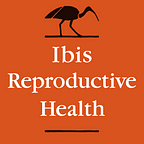SCOTUS is reconsidering abortion restrictions again — what does the evidence tell us?
By Kelly Blanchard
Today, the Supreme Court heard oral arguments in June Medical Services v Russo, and will consider whether it is constitutional to require abortion providers to have hospital admitting privileges in order to offer abortion care. In 2016, when the court reviewed an almost identical law in Whole Woman’s Health v Hellerstedt, it ruled that this same restriction was unconstitutional.
In its 2016 decision, the court clarified the undue burden standard that it uses to evaluate whether a law on abortion is constitutional. At the time, the court found that “neither of these provisions confers medical benefits sufficient to justify the burdens upon access that each imposes. Each places a substantial obstacle in the path of women seeking a previability abortion, each constitutes an undue burden on abortion access.” In other words, if there was no actual benefit of a restriction, then getting in the way of a person seeking abortion care was an undue burden, and therefore unconstitutional.
As we prepare to hear oral arguments in June Medical Services v Russo and wait for the Court’s decision later this year, we should look to the evidence. The Texas Policy Evaluation Project, of which Ibis is a part, evaluated the impact of HB2 (the Texas law that was challenged in the Whole Women’s Health case in 2016) and showed that restrictions led to people having to travel further, pay more for care, and delay their abortions later into pregnancy as a result of limited appointments. Research also suggests that some people were unable to access the abortion care they wanted. As SCOTUS heard in 2016, being denied an abortion can seriously impact a woman’s health, life, and economic security. Not obtaining a wanted abortion is harmful for women and children, keeping women in harmful abusive relationships and resulting in poorer child outcomes.
As the Court will hear in June Medical Services, abortion is safe and there is extensive data to support that. Admitting privileges do not improve women’s health and the National Academies of Sciences, Engineering, and Medicine have summarized the evidence that shows that they are completely unnecessary for safe, high-quality abortion care. In fact, restrictions based on admitting privileges lead to lower access and quality, as people are forced to jump through unnecessary hoops to get the care they seek.
But the burden being considered by the Court is just one of many documented harms from abortion restrictions — particularly the hardships that are a result of funding bans and lack of insurance coverage for care. People seeking care report being unable to pay for food or rent in order to come up with the funding for abortion care, and similar to the data above, delaying care while they try and find the funding for the abortion they seek. These restrictions disproportionately impact people of color, young people, and people struggling to make ends meet. Across the country, other medically unnecessary restrictions are currently limiting access and causing harm — and they will continue to do so even if the Louisiana law is struck down.
Access to abortion care is a fundamental human right. And the mountain of data submitted for the upcoming case — social science data, clinical data, qualitative data, testimonials — explains the impact of abortion restrictions and the harm they cause quite clearly.
Eliminating unnecessary restrictions is good medicine, good science, and good Constitutional law. We hope the Court will again carefully consider the available data, ensure that health care providers can offer high-quality abortion care to their patients, and protect the rights and well-being of people in Louisiana and across the United States. The Court has a duty to ensure that people’s rights are protected, and that they can make decisions about their families that are best for them, without interference from politicians.
But regardless of the outcome, Ibis will continue to research the critical role coverage of abortion care plays in ensuring that people’s rights and health are not determined by their income. We will continue advocating for expanding access to medication abortion by eliminating medically unnecessary regulatory hurdles so that people can access the abortion procedure that is right for them. And we will continue working to ensure that people’s ability to make decisions that are right for their family and their health throughout pregnancy is seen as a human right and health imperative.
Kelly Blanchard is the President of Ibis Reproductive Health, a global research organization focused on sexual and reproductive health and rights. Ibis works with partners around the world to conduct research that can inform policies and pave the way for innovative strategies that improve people’s sexual and reproductive health and lives. Ibis also works with partners to build powerful coalitions and advocate for changes that benefit those who face the biggest barriers in accessing the health care they need.
